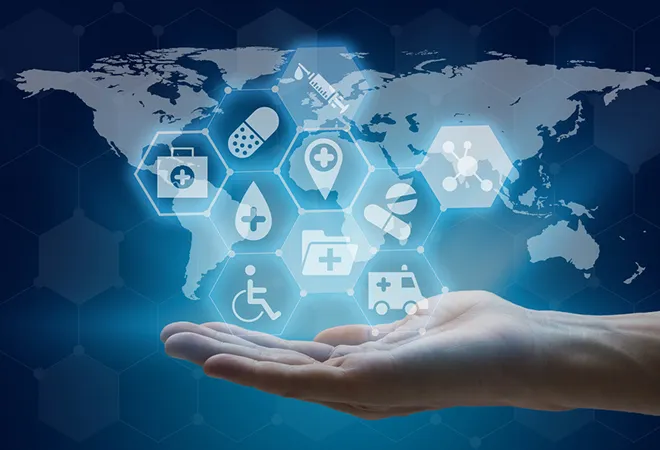
The Importance of HealthSecurity
- Protection Against Pandemics: Recent events such as the COVID-19 pandemic have highlighted the critical need for HealthSecurity. Robust public health infrastructure and preparedness can help mitigate the spread of infectious diseases, saving lives and preventing economic disruptions.
- Promoting Well-being: HealthSecurity isn’t just about preventing diseases; it’s also about promoting overall well-being. Access to healthcare services, healthy environments, and preventive care contribute to a healthier population.
- Reducing Healthcare Costs: By investing in HealthSecurity measures such as vaccination programs, disease surveillance, and early detection initiatives, societies can potentially reduce the economic burden associated with treating advanced illnesses.
- Enhancing Resilience: Individuals and communities equipped with the tools and knowledge to respond to health emergencies are more resilient in the face of crises. This resilience extends beyond health emergencies to encompass broader societal challenges.
Strategies for Achieving HealthSecurity
- Investing in Public Health Infrastructure: Strong public health systems form the backbone of HealthSecurity. This includes funding for disease surveillance, laboratory capacity, healthcare workforce training, and emergency response capabilities.
- Promoting Preventive Care: Emphasizing preventive care through vaccinations, screenings, healthy lifestyle promotion, and environmental regulations can significantly reduce the burden of disease and enhance population health.
- Ensuring Universal Healthcare Access: Access to affordable and quality healthcare services is essential for achieving HealthSecurity. Policies that expand healthcare coverage and address healthcare disparities are crucial.
- Fostering International Cooperation: Health threats know no borders, making international collaboration essential. Sharing information, resources, and best practices across borders strengthens global health security efforts.
- Harnessing Technology: Technology plays a pivotal role in modern health security. From telemedicine and digital health records to AI-driven disease surveillance and vaccine development, technological innovations can revolutionize health security strategies.
Implications for Individuals and Society
- Empowering Individuals: Informed individuals who actively participate in their healthcare decisions and adopt healthy behaviors contribute to overall health security. Health education and literacy programs play a vital role in empowering individuals.
- Building Community Resilience: Communities that prioritize health security build resilience against various threats, fostering social cohesion and collective action. Local initiatives, community health centers, and disaster preparedness efforts strengthen community resilience.
- Supporting Economic Stability: Health security is intrinsically linked to economic stability. Healthy populations are more productive, and investments in health security can prevent costly disruptions to economies during health emergencies.
- Advancing Global Stability: A healthier world is a more stable world. By addressing health security challenges globally, nations can contribute to stability, peace, and prosperity on a global scale.
Conclusion
HealthSecurity is not just a concept; it’s a fundamental human right and a cornerstone of a prosperous society. By prioritizing health security through investments in public health infrastructure, preventive care, universal healthcare access, and international cooperation, individuals and societies can build a resilient future where health threats are minimized, and peace of mind is ensured. As we navigate an increasingly complex and interconnected world, let us recognize that our collective health security is paramount for a thriving global community.
 Prachand Ashok Your Ultimate Source for Latest News and Tech Updates
Prachand Ashok Your Ultimate Source for Latest News and Tech Updates


